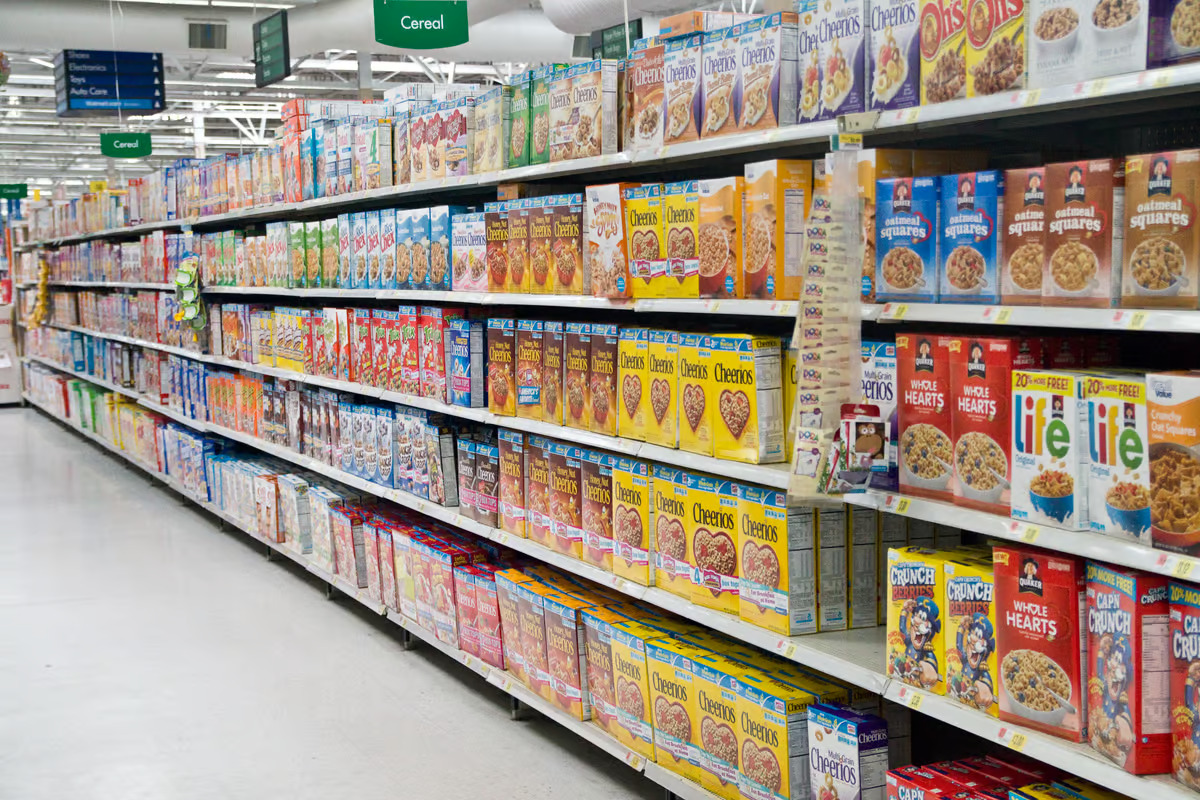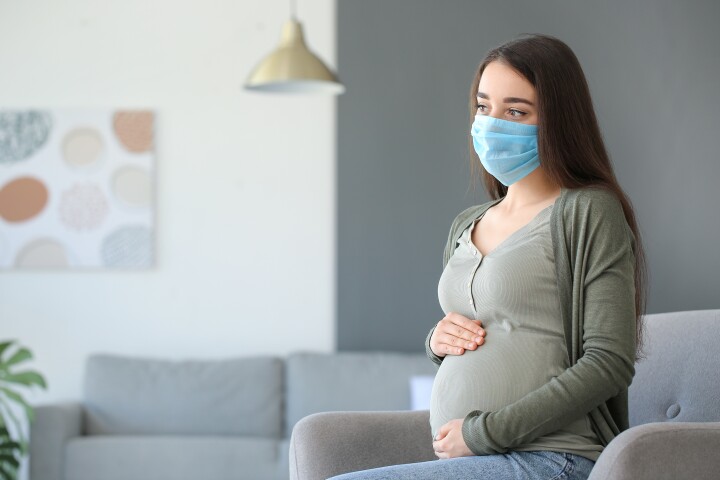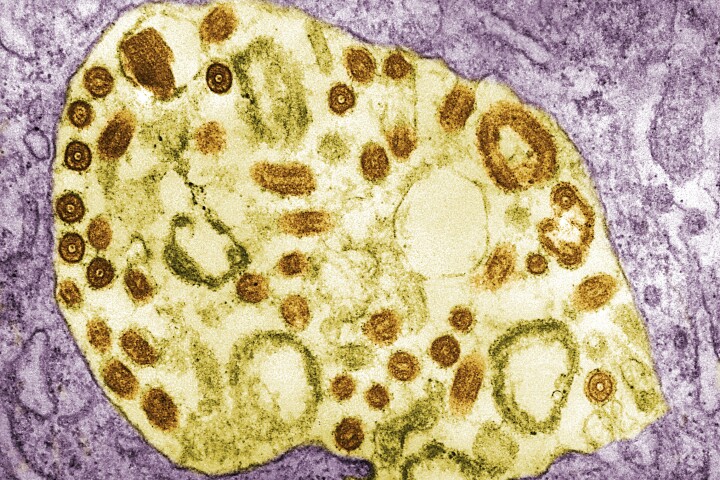 Some researchers are calling for health warning labels to be put on ultra-processed food packaging. Depositphotos
Some researchers are calling for health warning labels to be put on ultra-processed food packaging. Depositphotos
–
“The average person in the UK consumes more than half of their daily energy intake from ultra-processed foods,” explained Kiara Chang, first author on the new study from Imperial College London. “This is exceptionally high and concerning as ultra-processed foods are produced with industrially derived ingredients and often use food additives to adjust color, flavor, consistency, texture, or extend shelf life.”
Ultra-processed foods are industrially-produced foods, high in salt, sugar and fat. They contain little to no whole foods, and harbor plenty of food additives, colorings and preservatives. For the purposes of this study, the researchers categorized a variety of foods under the umbrella of ultra-processed, including, “soft drinks, mass-produced industrial-processed breads, sweet or savory packaged snacks, breakfast ‘cereals’, reconstituted meat products and ready-to-eat/heat foods.”
Looking at data from an ongoing UK health study the researchers tracked incidences of cancer across a 10-year period. Each participant also completed 24-hour dietary records at several points over the study period as a way of evaluating their overall food intake.
The findings revealed a distinct correlation between ultra-processed food intake and increased risk of cancer. For every 10% increase in ultra-processed food consumption, the researchers detected a 2% overall increase in cancer risk, with ovarian cancers in particular showing the greatest increase in risk at 19%. Cancer-related death also increased with each 10% increment in ultra-processed food intake.
While the researchers are clear to point out their findings cannot attribute causality to this association, they do speculate a number of ways ultra-processed foods could increase a person’s cancer risk. Alongside the high fat, sugar and salt content, it is noted these kinds of foods often contain a variety of chemical additives and contaminants that may play a role in cancer risk, including microplastics from packaging materials.
“Recent evidence from the NutriNet-Santé cohort showed higher intake of artificial sweeteners associated with increased risk of overall, breast, and obesity-related cancers, while higher intake of nitrate and nitrite from food additives was associated with increased risk of breast and prostate cancer, respectively,” the researchers write in the study. “Higher dietary exposure of acrylamide, an industrial chemical formed during high-temperature cooking procedures, was found associated with an increased risk of ovarian and endometrial cancers.”
Simon Steenson, from the British Nutrition Foundation, said more research is needed to better understand the links between ultra-processed food consumption and poor health. He suggests it is possible people who eat lots of these kinds of foods simply have generally poor diets.
“It is possible that a higher proportion of UPFs in the diet is a marker of an overall poorer diet, which is higher in energy, saturated fat, salt, and free sugars, and lower in fruit, vegetables, fiber and essential nutrients – dietary factors that are known to negatively affect health,” said Steenson.
Duane Mellor, a dietician from Aston University, also questions the direct association found between ultra-processed foods and cancer. He said it is likely the negative health effects detected here are due to eating less healthy whole foods instead of the ultra-processed foods somehow directly causing cancers via chemical additives.
“When looking at food intake of people reported to be consuming more ultra-processed foods, they also tended to drink more fizzy drinks and less tea and coffee, as well as less vegetables and other foods associated with a healthy dietary pattern (e.g. pulses, nuts, seeds, fruit etc.),” said Mellor. ” This could mean that it may not be an effect specifically of the ultra-processed foods themselves, but instead reflect the impact of a lower intake of healthier food.”
Chang agrees fresh, minimally processed foods should be cheaper and more readily accessible to help drive people away from ultra-processed foods. However, Chang also argues warning labels should be attached to the packaging of ultra-processed foods to make consumers more aware of their unhealthy nature.
“We need clear front of pack warning labels for ultra-processed foods to aid consumer choices, and our sugar tax should be extended to cover ultra-processed fizzy drinks, fruit-based and milk-based drinks, as well as other ultra-processed products,” said Chang. “Lower income households are particularly vulnerable to these cheap and unhealthy ultra-processed foods. Minimally processed and freshly prepared meals should be subsidized to ensure everyone has access to healthy, nutritious and affordable options.”
Steenson, on the other hand, is against such simplistic solutions as labeling processed food as bad. He argues current food labeling already warns consumers of high sugar, salt and fat content, whereas some ultra-processed foods can actually be considered relatively healthy and we shouldn’t be stigmatizing those who can only afford these products.
“… an issue with the concept of UPFs is that this category can also contain commonly consumed foods that provide important nutrients, such as packaged wholemeal bread, which contains fiber and essential vitamins and minerals, or high fiber, lower sugar breakfast cereals that are commonly fortified with key nutrients,” explained Steenson. “These and other healthier foods that would be classified as UPF, such as reduced sugar and salt baked beans or vegetable-based pasta sauces, can form an important part of a healthy, balanced diet and provide affordable and widely available options that can form the basis of nutritious meals.”
The new study was published in eClinicalMedicine.
Source: Imperial College London
–























